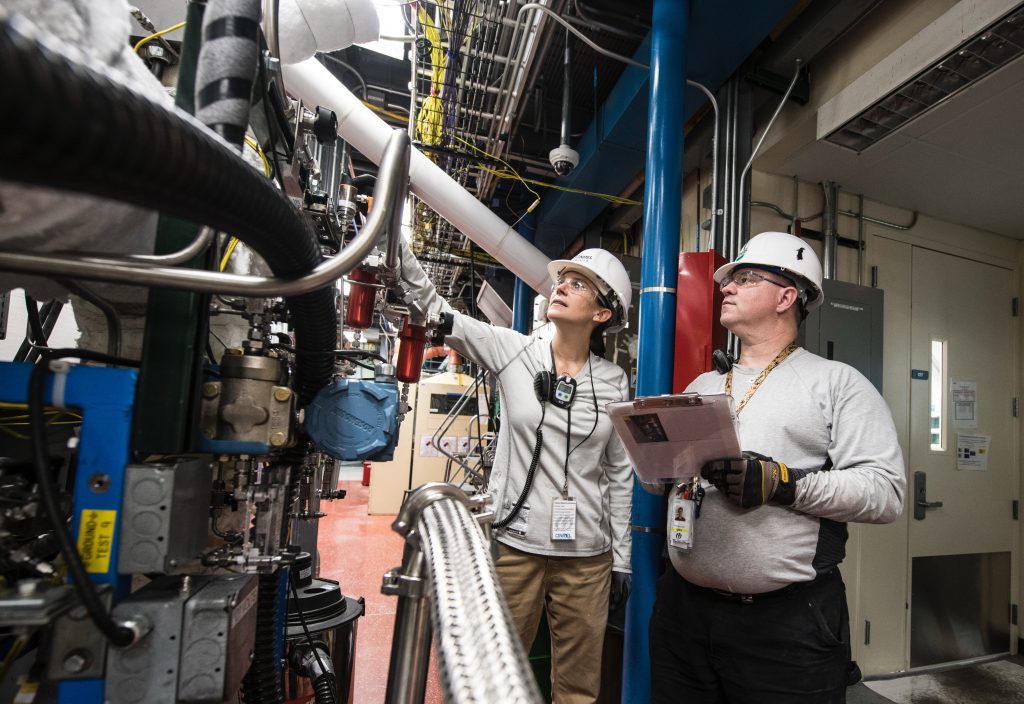ARTICLE
Energy efficiency: a glossary of terms
Every industry has its jargon, and that’s certainly true of the energy and energy efficiency sector too. So, we’ve put together a glossary of terms to explain some of our more commonly used terms.
Absolute zero
A state in which no greenhouse gases are released into the earth’s atmosphere, meaning no carbon removal or negative emissions technologies are used to balance carbon emissions. See also Net zero.
Carbon emissions
Carbon dioxide (CO2) is released or ‘emitted’ into Earth’s atmosphere mostly by the burning of fuels containing carbon, as well as through the decay of plant matter. Carbon emissions are naturally removed from the atmosphere by plants which absorb carbon to build their tissues, and by being dissolved into the ocean. However, since the 19th century the amounts of carbon emissions have increased hugely as we burn more and more fossil fuels for energy. CO2 in the atmosphere it acts as a blanket to slow the loss of heat from Earth into space, causing global warming.
Net zero
Net zero is the state in which the greenhouse gases going into the atmosphere are balanced by removal of greenhouse gases out of the atmosphere – which happens naturally by trees and plants, and through technology such as carbon capture and storage. See also Absolute zero.
Carbon offsetting
A carbon offset negates the overall amount of carbon released into the atmosphere by supporting a climate positive campaign elsewhere, such as funding a renewable energy project.
Energy efficiency
Achieving a minimum level of energy use within a building to reduce wasted energy, whilst maintaining desired levels of heating, lighting, and cooling.
Energy performance
Energy performance is a measure of the energy efficiency of a building, measured by the amount of energy required to provide lighting and heating for the building.
Energy assessment or energy audit
An energy assessments is an examination of a building to find out how much energy is being used within it, and to identify improvements which would reduce energy use.
Electricity meter
A device that measures the amount of electricity used.
Kilowatt kW / Kilowatt hour kWh
A standard unit of electrical power equal to 1,000 watts. A kilowatt hour is a unit of energy equal to one kilowatt of power expended for one hour.
Megawatt MW / Mega Watt hour MWh
Megawatt – a measure of electrical power equal to one million watts. A megawatt hour is a unit of energy equal to one megawatt of power expended for one hour.
EPC
An EPC – or Energy Performance Certificate – is a document for residential properties designed to inform potential buyers or tenants about the energy performance of a building, so they can consider energy efficiency and running costs as part of their decision. The scale runs from A-G , with A being the most efficient.

Struggling to find energy efficiency funding?

Energy Efficiency Quick Tips for GP Practices

Support for businesses and organisations in Oxford City – Build Back Better (Ended December 2022)

What is an Energy Services Company (ESCO)?
ESCO
An ESCO – or Energy Services Company – that specialises in managing energy improvement projects. The ESCO may perform any or all of the following services: auditing, developing packages of recommended measures, arranging financing, installing or overseeing installation of measures, resident and staff education, equipment commissioning, maintenance, measuring, verifying, and guaranteeing savings. Find out more.
Contractor
Organisations appointed to carry out construction or installation works. Types of contractors for energy efficiency includes: electricians, architects, installers, general builders and more. Find out more.
Payback period
The payback period refers to the amount of time it takes to recover the cost of an investment. So, in the context of energy improvements, the payback period is how long it will take for the upfront cost of making improvements to be recouped by savings on energy bills.
Air tightness
Airtightness refers to how much air is moving in and out of a building. Typically, the more air tight a building the more efficient its energy use, as less energy is being lost through leaks in the building’s fabric. However, at the same time, controlled ventilation must be in place to allow for air flow. See ventilation.
Biomass
Biomass (also known as biofuel) is plant or animal material which is burned for use as fuel to produce electricity or heat. Examples are wood, energy crops and waste from forests, yards, or farms. This is classed as a carbon neutral process, because the carbon dioxide released during the generation of energy from biomass is balanced by that absorbed by plants during their growth.
Insulation
Insulation refers to a material (wool, wood fibre etc) which is used to prevent loss of heat. It can refer to insulation of a building itself (cavity wall, internal wall, external wall, loft etc) but you can also insulate smaller elements, such as insulating a water tank or hot water pipe to reduce heat loss and optimise the efficiency of the part.

Struggling to find energy efficiency funding?

Energy Efficiency Quick Tips for GP Practices

Support for businesses and organisations in Oxford City – Build Back Better (Ended December 2022)

Are your workplace LED lights too bright?
LED
An LED – or light-emitting diode – is an electronic device made of semiconductors that emits light when an electric current is passed through it. They are much more efficient than traditional halogen bulbs which waste a lot of energy as heat. Find out more.
Renewable energy
Renewable energy is energy produced using naturally replenishing resources. This includes solar power, wind, wave and tide and hydroelectricity.
Retrofit
A retrofit improves the energy performance of an existing building, making improvements and upgrading existing appliances.
Ventilation
The process of supplying outdoor air to or removing indoor air from a building by natural or mechanical means. Controlled ventilation is necessary to maintain the health of a building and prevent damp and mould.

Want to add a term to our glossary?
We’re sure there are plenty of energy-related terms that we haven’t managed to include. Drop us an email if there’s one you think should be in this glossary.
Did you like what you read?
Then share this page with a colleague to keep the
conversation going and spark new ideas.
You might also like…

Struggling to find energy efficiency funding?

Energy Efficiency Quick Tips for GP Practices

Support for businesses and organisations in Oxford City – Build Back Better (Ended December 2022)

Energy efficiency barriers costing businesses £720m in potential cost savings

Boiler Upgrade Scheme set to open for small non-domestic properties

More than half of large UK companies now have a Net Zero strategy in place

